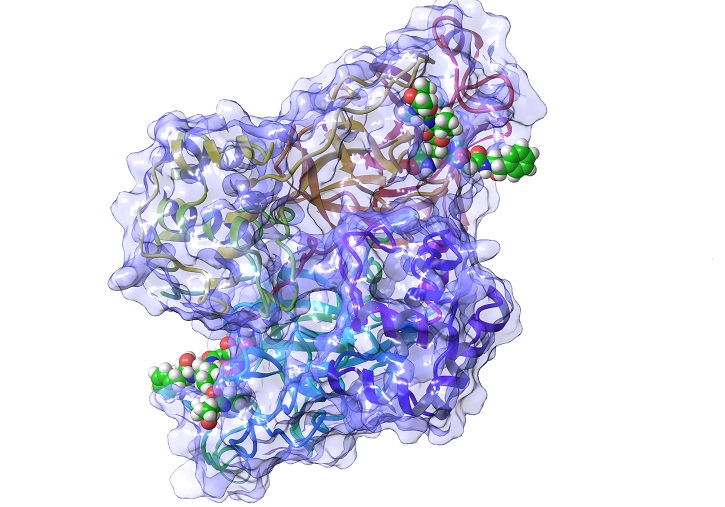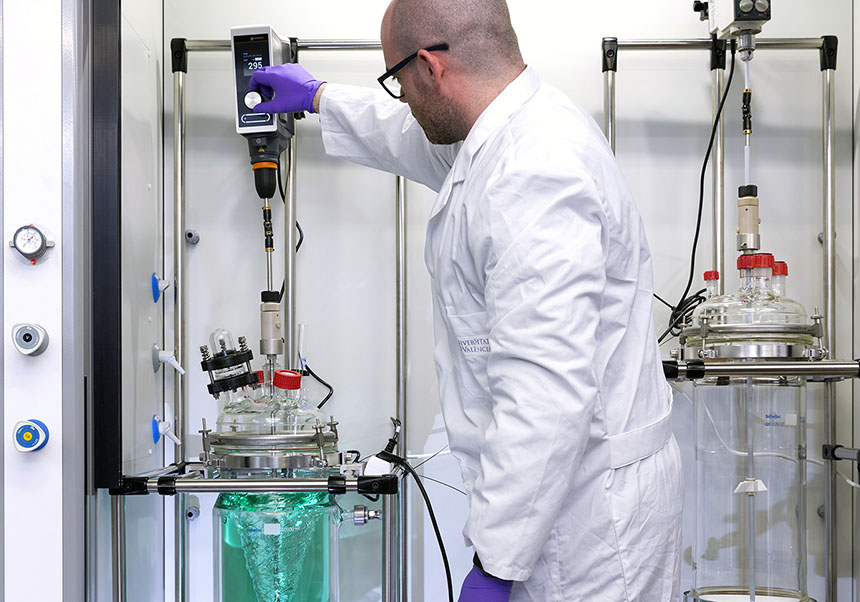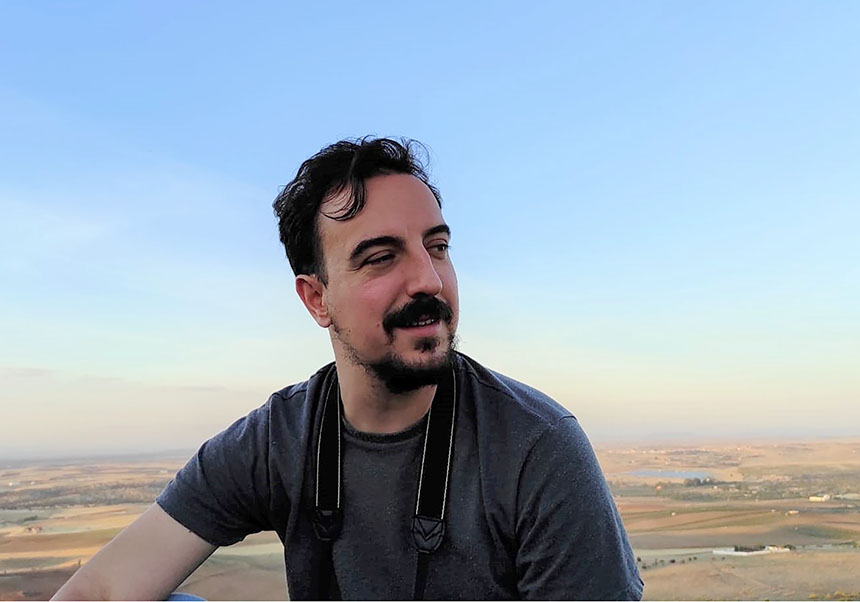The University of Valencia will use 23 million hours of the MareNostrum 4 supercomputer to block a protein from the SARS-CoV-2 virus
- Scientific Culture and Innovation Unit
- April 9th, 2020

The Environmental Effects Research Group (EFME) of the University of Valencia has started a PRACE European project (consisting of being able to use millions of hours of the most powerful supercomputers on the continent) to simulate the chemical reactivity of Mpro, the main protease of the SARS-CoV-2. The aim is to obtain information that helps the design of drugs to inhibit this enzyme and thereby prevent the virus from replicating.
The researchers from the Valencian EFME research group will remotely use 12,000 processors (7.3% of the capacity of the MareNostrum 4 supercomputer of the Barcelona Supercomputing Center-BSC) for two and a half months, with runs of ten simulations at a time and one 23.3 million processor hours total. The project is part of the special call PRACE COVID-19 fast (Partnership for Advanced Computing in Europe), an extraordinary procedure by which the most powerful public supercomputers in Europe have been made available to research on COVID-19, including in the European infrastructure PRACE.
“We are studying, through computer simulations, the main protease of the virus (Mpro). This enzyme acts on the protein complex that is synthesised in the infected cell and cuts it into the different proteins that the virus needs. This enzyme is fundamental in the replication of the virus and does not present closely related homologs in humans, which makes it a highly attractive therapeutic target”, said Iñaki Tuñón, professor of Physical Chemistry at the University of Valencia and coordinator of the group, which also includes Javier Ruiz-Pernía and Carlos Ramos. The team has the support of the computer service of the University of Valencia, specifically, its technician Alejandro Soriano, for the development of the project.
The project began yesterday, Wednesday, April 8, and the research group has two and a half months to carry out the simulations. It is a computational study that will be carried out completely online through a remote connection to the BSC supercomputer, in which the necessary software for studying the mode of action of the virus protease has already been installed.
“Once we have the results of our simulations, we will make them accessible to the entire scientific community. In addition, we are talking with Professor Hübner’s experimental group at the University of Munich for the possible validation of our computational observations”, said Tuñón. The Environmental Effects research group has also requested funding through the COVID-19 call for projects from the Carlos III Health Institute.
Quantum mechanics and classical dynamics
The research group on Environmental Effects of the University of Valencia is dedicated to the computational simulation of biochemical processes, in particular to the study of the mode of action of enzymes. It uses methods that combine the principles of quantum mechanics and classical dynamics to study how enzymes speed up the chemical reactions that occur in living things, causing them to take place at speeds compatible with life. The group is made up of assistant professors Javier Ruiz-Pernía and Lourdes Gracia, researcher Carlos Ramos, and is chaired by Professor Iñaki Tuñón. In addition, it has the support of the Computing Service of the Universitat de València through the technician Alejandro Soriano.















